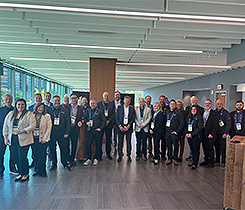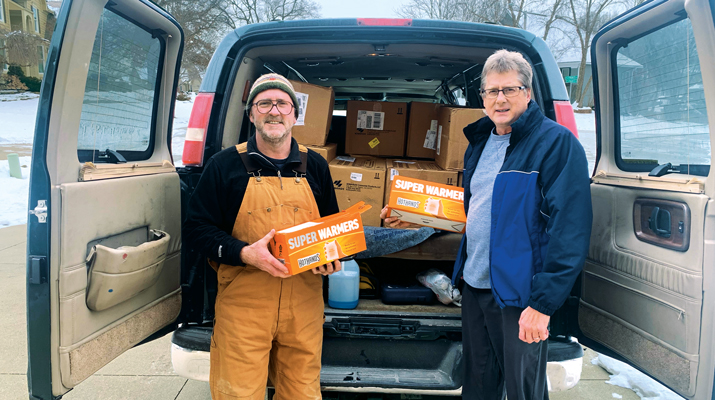Let’s share the load for security
A March 2002 incident involving a Kentucky propane distributor provided a grim reminder of the security challenges that still face the bulk logistics sector. It presented potential for the sort of nightmare terrorist scenario that everyone in this industry dreads.
The details of the incident are as follows: A 29-year-old driver for the propane distributor drove away with a 3,000-gallon bobtail on March 31 and made a telephone threat stating that he wanted to kill President George Bush and that he was use the bobtail as a “3,000-pound” bomb.
The driver led Secret Service agents and officers from five other law enforcement agencies on a 20-mile highway chase. The driver was arrested after police used spike strips to puncture the truck’s tires near Chattanooga, Tenn. Ironically, the truck had gotten new tires just about a week before the incident.
This incident comes at a time of continuing debate on a number of initiatives designed to increase the security of hazardous materials shipments. However, it’s unlikely that any of these initiatives could have prevented the propane bobtail incident or stopped it any quicker.
First on the list is the congressional mandate to require criminal background checks for any truck driver who handles hazardous materials. The driver who stole the bobtail worked for the propane distributor. His driving record showed that he was in compliance with all commercial driver license requirements. There was nothing that would have sent up a red flag.
In a recent letter to the Federal Motor Carrier Safety Administration, National Tank Truck Carriers contend that the criminal background check as currently mandated will do more harm than good. The association says the requirement unfairly singles out hazmat drivers and could lead to a severe shortage. If background checks are to be required, they should apply to all commercial driver license holders.
“We are especially concerned that the new background check procedures and fingerprint requirements for hazardous materials endorsements will have a negative impact on the current and future hazardous materials driver pool,” NTTC President Cliff Harvison wrote to FMCSA.
“We already have heard from safety directors who have drivers who will simply not renew their hazardous materials endorsements and will go drive for someone else. This is not because they fear what will be found in the background checks; rather, it is because there are plenty of other driving jobs where they will not have to endure the ‘hassle and expense’ being required for this one class of drivers. There already is a shortage of qualified hazardous materials drivers because of the special demands of the profession.
“If the concern is that commercial driver license holders will use a truck to commit a terrorist act, then all drivers should be covered. As has been shown in the two truck-related terrorist acts in the United States Oklahoma City and the World Trade Center no commercial driver license holder was involved and no special access to a vehicle laden with hazardous materials was required.”
Similar concerns are being expressed about government initiatives that would require high-tech security systems with hazmat shipments. Department of Transportation officials and those in law enforcement seem to believe that the technology can provide a magic shield against terrorism.
At a minimum, they want to mandate satellite-tracking systems on trucks hauling hazardous materials. Vendors also are trying to get into the act with a multitude of truck-mounted security systems, such as biometric authentication to access the truck ignition.
Many of these products can be beneficial. However, the universal truth is that any security technology created by man can be defeated by man. Tank truck drivers and workers in this industry provide crucial front-line defense against terrorist acts. Backed up by security awareness training, they are doing an excellent job. Security technology can augment their efforts, but it can’t eliminate human involvement.
With that in mind, it is more crucial than ever to hire the best people available. Good wages are needed to attract these people. Security technology can’t be ignored, and companies must have the capital to invest in appropriate systems. All of this means rates must be higher. Shippers must realize that hazardous materials security is not a free bonus.
We’re all in this together, and we need to share the load.
















